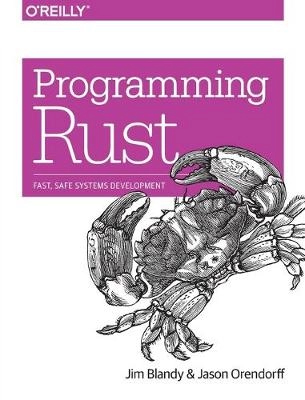

Programming RustUpplaga 1
- Upplaga: 1a upplagan
- Utgiven: 2018
- ISBN: 9781491927281
- Sidor: 400 st
- Förlag: O'Reilly Media
- Format: Häftad
- Språk: Engelska
Om boken
Rust is a new systems programming language that combines the performance and low-level control of C and C++ with memory safety and thread safety. Rust's modern, flexible types ensure your program is free of null pointer dereferences, double frees, dangling pointers, and similar bugs, all at compile time, without runtime overhead. In multi-threaded code, Rust catches data races at compile time, making concurrency much easier to use. Written by two experienced systems programmers, this book explains how Rust manages to bridge the gap between performance and safety, and how you can take advantage of it. Topics include: How Rust represents values in memory (with diagrams) Complete explanations of ownership, moves, borrows, and lifetimes Cargo, rustdoc, unit tests, and how to publish your code on crates.io, Rust's public package repository High-level features like generic code, closures, collections, and iterators that make Rust productive and flexible Concurrency in Rust: threads, mutexes, channels, and atomics, all much safer to use than in C or C++ Unsafe code, and how to preserve the integrity of ordinary code that uses it Extended examples illustrating how pieces of the language fit together
Åtkomstkoder och digitalt tilläggsmaterial garanteras inte med begagnade böcker
Mer om Programming Rust (2018)
I januari 2018 släpptes boken Programming Rust skriven av Jim Blandy. Det är den 1a upplagan av kursboken. Den är skriven på engelska och består av 400 sidor djupgående information om data. Förlaget bakom boken är O'Reilly Media.
Köp boken Programming Rust på Studentapan och spara pengar.
Tillhör kategorierna
Referera till Programming Rust (Upplaga 1)
Harvard
Blandy, J. (2018). Programming Rust. 1:a uppl. O’Reilly Media.
Oxford
Blandy, Jim, Programming Rust, 1 uppl. (O’Reilly Media, 2018).
APA
Blandy, J. (2018). Programming Rust (1:a uppl.). O’Reilly Media.
Vancouver
Blandy J. Programming Rust. 1:a uppl. O’Reilly Media; 2018.
Bokens omdöme
Ingen har recenserat den här boken ännu.



















